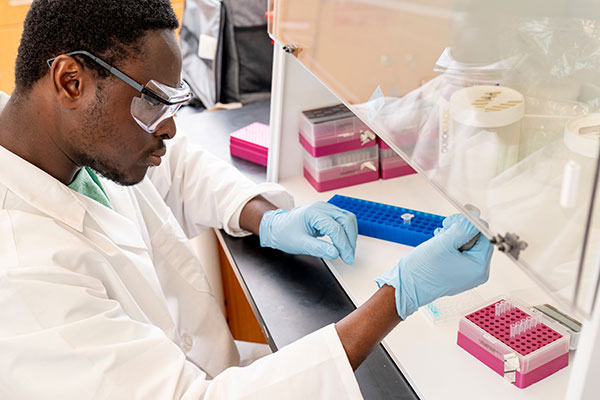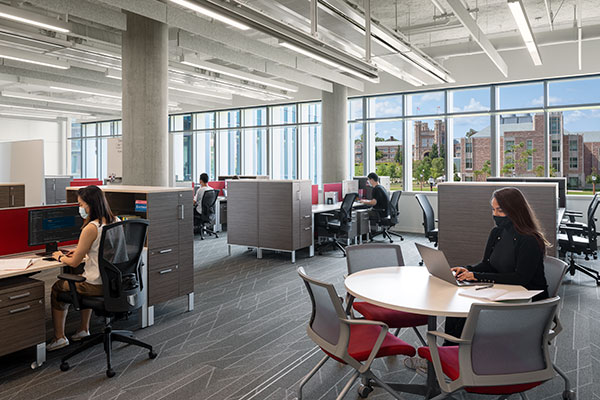It's easy to start your application.
Undergraduate Research
Summer Research Opportunities
Summer research experiences for undergraduates
Each summer, hundreds of undergraduate students arrive on campus at Washington University in St. Louis to perform research in faculty labs. At the McKelvey School of Engineering, students can choose from six summer research programs that aim to help undergraduates sharpen their analytical skills and build their professional network. In this video, meet five students who spent their summer researching and growing at McKelvey Engineering.
The summer research programs offered through the McKelvey School of Engineering is a great way to expand your horizons and discover if a future in research is right for you.
Washington University Summer Engineering Fellowship (WUSEF)
The WUSEF program is designed to encourage exceptional students from backgrounds underrepresented in the STEM fields, including underrepresented minority students, students from economically disadvantaged and underserved backgrounds, and students with disabilities, to participate in engineering research. Fellows will enjoy a rewarding summer research experience at one of the nation’s top universities.
Each fellow will engage in an independent research project under the guidance of a McKelvey School of Engineering faculty member.
Washington University Cardiovascular Research Summer Program (WashU CardS)
WashU CardS is designed to encourage undergraduate students from academic institutions with limited research opportunities to participate in cardiovascular research. In this 10-week program students will be immersed in rigorous research skill training (e.g., critical thinking, literature reviews and bench skills, like histology, PCR, ECG, microscopy, image analysis, etc.) and cutting-edge projects that advance the state-of-the-art in cardiovascular research.
Computer Science & Engineering Research Experience for Undergraduates
Participating in an undergraduate research project is a great way to learn a lot about a specific area and to try your hand at a cutting-edge research topic. If you are thinking about graduate school, this is also an excellent opportunity to learn more about academic research and to get hands-on experience before applying.
NSF Center for Engineering Mechanobiology Summer Research Experience
The CEMB seeks motivated undergraduate students for its annual summer Research Experiences for Undergraduates (REU) program. Students participate in 10-week, on-campus programs in Philadelphia or St. Louis, working in research groups at the University of Pennsylvania and WashU. Students are matched to projects within a research group based on their interests, educational background and previous research experience.
International Student Research Internship Program
The International Student Research Internship Program is designed for students currently enrolled at an international university to participate in engineering research at WashU during the summer months (May through September).
Projects will be in the general areas of biomedical engineering, computer science, computer engineering, electrical engineering, systems engineering, chemical engineering, energy & environmental engineering, mechanical engineering & materials science.
Thermal Management Research Experience for Undergraduates
Be immersed in projects tied to emerging technologies such as metal-air batteries and nanofluidic and micro-/nanostructural thermal transport enhancement, while also learning the role of thermal-fluids engineers in the micro-/power electronics, chemical/material processing, transportation, and energy industries. You'll have multiple one-on-one advising sessions with faculty to define and develop a plan for achieving personal goals.
Washington University Women's Health Engineering Summer Research Program
Students participating in the Women’s Health Engineering Summer Research Program will be immersed in rigorous research skills training (e.g. critical thinking, literature reviews, and bench skills). The program will also provide the support, training and experiences students need to improve oral and written communication and prepare for graduate studies and careers in women’s health engineering. Each student will be matched to and supported by a faculty mentor and a bench mentor for the immersive research experience.


